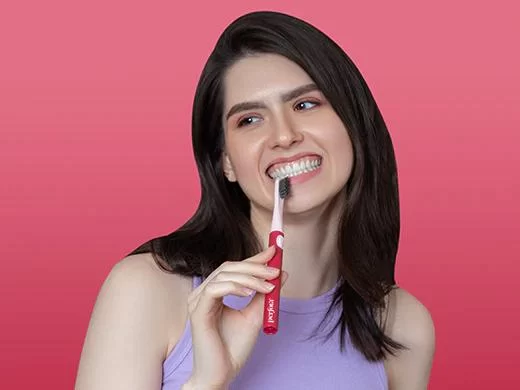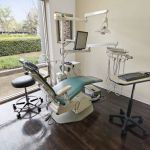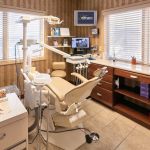
Why a Soft-Bristled Toothbrush is Best for Your Teeth
When I first learned about the importance of using the right toothbrush, I was surprised to find that many people, including myself, had been using hard-bristled brushes for years without realizing the potential harm they could cause. Over time, I switched to a soft-bristled toothbrush, and the difference has been remarkable in terms of comfort, gum health, and overall oral hygiene. In this article, I’m going to share why you should be using a soft-bristled toothbrush and how it can make a significant difference in your daily oral care routine.
1. Protects Your Gums from Damage
One of the most important reasons I switched to a soft-bristled toothbrush was to protect my gums. After years of using a hard-bristled toothbrush, I started noticing that my gums were receding slightly, and I was experiencing some sensitivity. It turns out that brushing with stiff bristles can be too abrasive, especially if you apply too much pressure. This can irritate and damage the delicate gum tissue, leading to gum recession and even gum disease.
Soft-bristled toothbrushes, on the other hand, are gentler on your gums. They clean effectively without causing harm, allowing your gums to stay healthy and intact. I’ve found that a soft brush gives me a thorough cleaning while keeping my gums happy and free from irritation.
2. Safeguards Your Tooth Enamel
Tooth enamel is the outermost layer of your teeth, and it’s essential for protecting them from decay. Over time, I learned that using a toothbrush with hard bristles can wear away at enamel, especially if you scrub your teeth too vigorously. Enamel erosion is a gradual process, but once it happens, it’s irreversible. I realized that maintaining my enamel was crucial for the long-term health of my teeth, which is why I made the switch to a soft-bristled toothbrush.
Soft bristles clean your teeth effectively without causing enamel wear, which helps preserve the natural protective layer of your teeth. This makes it easier to avoid tooth sensitivity and decay, which can occur when enamel is damaged.
3. More Comfortable for Sensitive Teeth
After undergoing dental treatments, I noticed that my teeth were more sensitive to hot and cold food, and brushing with a hard-bristled brush only made it worse. It was uncomfortable, and I often dreaded brushing my teeth. Since switching to a soft-bristled toothbrush, I’ve noticed a huge improvement in comfort. The bristles are gentle and don't cause the discomfort that I experienced with harder brushes.
If you have sensitive teeth or gums, a soft-bristled toothbrush is the ideal choice. It’s effective in removing plaque and food particles without causing any pain or discomfort. I highly recommend switching to a soft brush if you have any form of tooth sensitivity.
4. Cleans Better Without Damage
At first, I thought that the harder the bristles, the better the cleaning power. However, I quickly learned that this isn't the case. Hard bristles can cause more harm than good by damaging the delicate surfaces of your teeth and gums. While hard bristles may seem like they are removing plaque more effectively, they can actually push bacteria further below the gumline, leading to potential oral health issues.
Soft-bristled brushes, on the other hand, remove plaque and debris from the surface of your teeth effectively while being gentle enough not to cause any harm. I’ve found that my teeth feel cleaner and smoother after using a soft-bristled toothbrush, and my dental visits have shown that my gums are much healthier as well.
5. Ideal for People with Braces or Other Dental Work
If you’ve ever had braces or other dental work like crowns, fillings, or implants, you know that it’s important to be extra careful with your oral hygiene. Using a hard-bristled toothbrush can be damaging to these dental appliances, and it can lead to irritation of your gums or even damage to the work itself. During my orthodontic treatment, I was advised by my orthodontist to use a soft-bristled brush to protect my braces and keep my gums safe.
For anyone with braces, dental implants, or crowns, a soft-bristled toothbrush is the safest option. It will clean effectively without causing damage or irritation to your dental work, ensuring that your smile remains healthy throughout your treatment.
6. Prevents Gum Bleeding and Irritation
When I first started brushing with a hard-bristled brush, I noticed that my gums would often bleed, especially around the gumline. This is a common issue for people who use brushes that are too stiff. Bleeding gums are often a sign of gum irritation or the early stages of gum disease. I realized that switching to a soft-bristled toothbrush helped significantly reduce this problem.
Soft bristles are gentler on the gums, so they’re less likely to cause bleeding or irritation. In fact, brushing gently with a soft brush can help reduce inflammation and encourage healthier gums. If your gums are prone to bleeding, using a soft-bristled toothbrush is a simple way to protect them while still maintaining good oral hygiene.
7. Easy to Find and Affordable
Another great thing about soft-bristled toothbrushes is that they are widely available and affordable. Whether you’re shopping at the drugstore or online, it’s easy to find a variety of soft-bristled brushes at different price points. I’ve personally tried several different brands, and I’ve found that even budget-friendly options work just as well as more expensive models.
Tip: Look for toothbrushes that are labeled as “soft” or “extra soft” to ensure that you’re getting the right level of gentleness for your teeth and gums. Many brands also offer ergonomic handles and easy-to-grip designs for comfort.







 Cash Family Orthodontics4.0 (141 review)
Cash Family Orthodontics4.0 (141 review) Bensalem Dental Specialties Center3.0 (162 review)
Bensalem Dental Specialties Center3.0 (162 review) Asha Dental Lenexa5.0 (5 review)
Asha Dental Lenexa5.0 (5 review) Rancho Dental Group4.0 (146 review)
Rancho Dental Group4.0 (146 review) Zakhor Dental Group4.0 (146 review)
Zakhor Dental Group4.0 (146 review) Arlington Family & Cosmetic Dental Associates4.0 (121 review)
Arlington Family & Cosmetic Dental Associates4.0 (121 review) The Importance of Oral Health Education During Pregnancy for a Healthy Pregnancy
The Importance of Oral Health Education During Pregnancy for a Healthy Pregnancy Best Tips for Brushing Your Teeth Properly for Healthy Gums: Essential Techniques for Oral Health
Best Tips for Brushing Your Teeth Properly for Healthy Gums: Essential Techniques for Oral Health Why Skipping Dental Checkups Can Lead to Bigger Oral Health Problems
Why Skipping Dental Checkups Can Lead to Bigger Oral Health Problems Advantages of Porcelain Dental Restorations
Advantages of Porcelain Dental Restorations How Can Diabetes Cause Tooth and Gum Problems? Preventing and Managing Oral Health Issues
How Can Diabetes Cause Tooth and Gum Problems? Preventing and Managing Oral Health Issues Healthy Habits for Promoting Good Oral Health and Hygiene: Tips for a Healthy Smile
Healthy Habits for Promoting Good Oral Health and Hygiene: Tips for a Healthy Smile